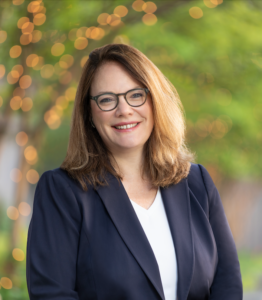A New Orleans judge has ruled in favor of Tulane University in a donor intent dispute over a century-old bequest.
Civil District Court Judge Rosemary Ledet on Monday granted the university’s motion for summary judgment while denying the plaintiffs’ motion. She ruled that language in the will of Josephine Newcomb contained “no enforceable conditional obligation to support” claims by plaintiffs, The Future of Newcomb College (TFNC). Language in the will “clearly gives the university full and complete control over how her donation will be used,” according to a statement from Tulane University.
“Despite today’s unfavorable decision, we still strongly believe that both the facts and the law support” the legal claim by Susan Henderson Montgomery, a great niece of Newcomb, said Renee Seblantigg, president of The Future of Newcomb College (TFNC), a group of alumnae and others supporting legal efforts to force Tulane to re-open the college.
“Mrs. Newcomb’s bequest to the Tulane Board of Administrators was clearly subject to a charge, or a performance obligation, which the Tulane Board acknowledged, assumed and executed for 119 years. That obligation was to develop and maintain in perpetuity a coordinate women’s college at Tulane,” she said.
TFNC will confer with Henderson Montgomery and will determine what course of action to take, said Seblantigg. “To allow Tulane University to get away with unnecessarily dissolving Newcomb College against the express wishes of one of their largest donors would be a blow to the concept of ‘donor intent’ and to the future of women’s education everywhere,” she said.
Josephine Louise Newcomb founded H. Sophie Newcomb Memorial College in 1886 as a memorial to her daughter. When she died in 1901, Newcomb had given Tulane more than $2 million, which today would be worth almost $50 million.
Newcomb College was the first degree-granting institution for women in the country created within an existing university but closed in July 2006 as part of the restructuring of Tulane in the aftermath of Hurricane Katrina.
Tulane officials believe that Newcomb did not impose conditions on her gifts as long as they were used for educating young women. After the college’s closing, Tulane established the H. Sophie Newcomb Memorial College Institute, which sponsors programs that the college used to provide.
Donor intent cases in higher education have become increasingly important, according Seblantigg. There are similarities among many of these cases but no two are exact parallels, which is “indicative of the fact that donors and families are becoming more and more conscious of the use of their donations,” she said.
Comprised of volunteer lawyers, TFNC was created three years ago with a mission to restore Newcomb College. The organization is funding the lawsuit through its own fundraising.
Henderson Montgomery filed suit and petitioned the Civil District Court for Orleans Parish in May to grant summary judgment on key issues in the case and order Tulane to reopen the college.
The Louisiana Supreme Court, in Howard v. Tulane, last year clarified a law allowing successors of donors to bring an action to enforce terms of a gift or will, but did not rule on the merits of the Newcomb gift specifically. Plaintiffs in the Howard case were not blood heirs so the court returned the case to the trial court where plaintiffs dismissed it, allowing Montgomery to file suit.












